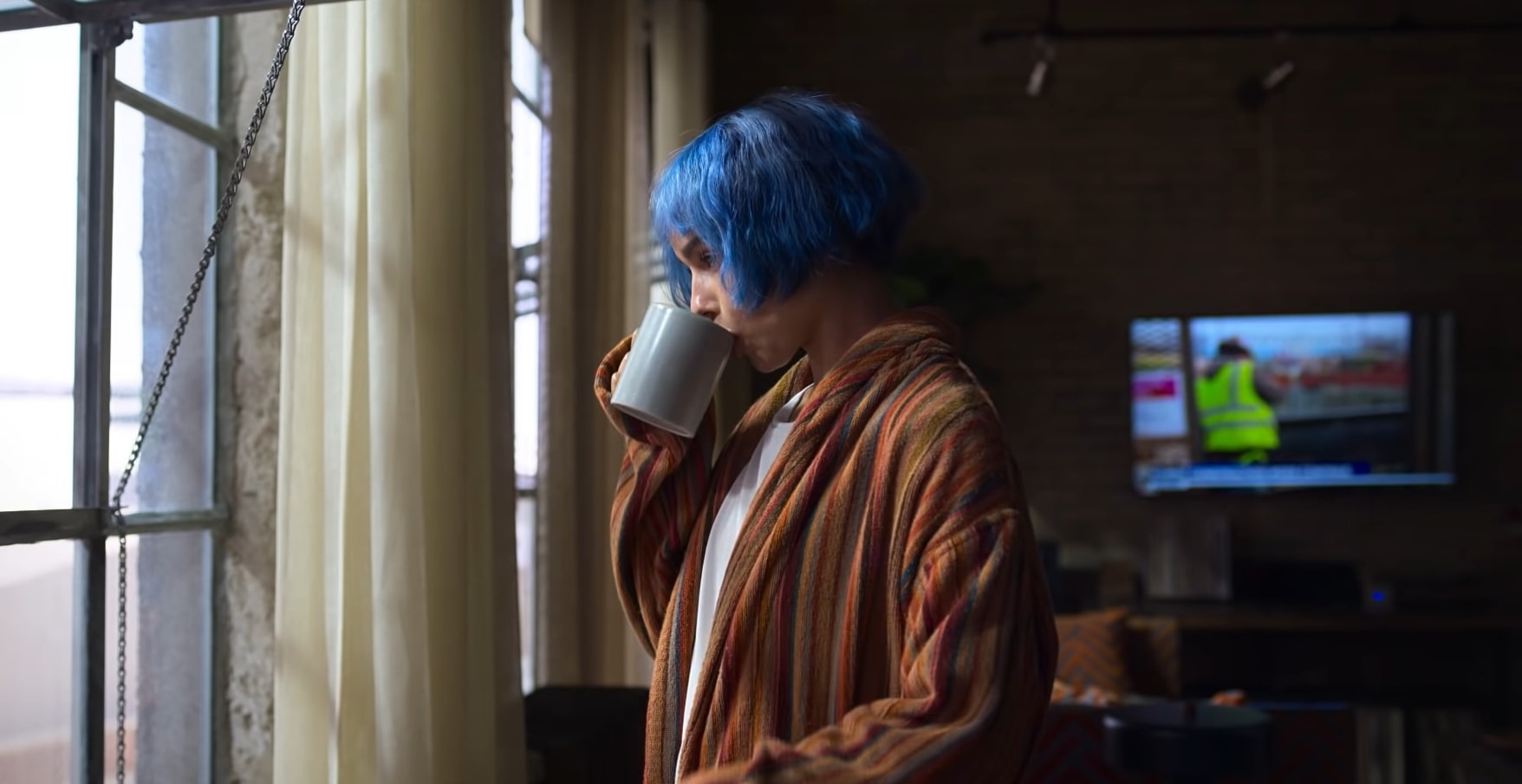
I think Steven Soderbergh might be my favorite film critic.
Wait, Elijah, that’s not right, you protest, Soderbergh isn’t a film critic. He’s a filmmaker.
Yes, that is true. He does make films, but like Jean-Luc Godard or Quentin Tarantino, there is something inescapably discursive about his films. Soderbergh often makes movies about the way movies work. The story and characters are secondary to the way they function within whatever kind of movie he’s making. Often, he’s critiquing – exploring, applying different epistemological lenses, trying to see better, to understand – other movies that are like the movie he is making by making that movie. If you too like to interact with movies in this discursive way, Soderbergh’s movies are lots of fun. If you don’t, and you’d rather just be taken for an emotional ride, Soderbergh’s movies can often feel somewhat clinical even when they are entertaining.
All of Soderbergh’s movies are not like this. He has, thankfully, had a long career, and while he began in this discursive mode, he did have a string of hits in the late 90s and early 00s that were more conventional. In Out of Sight, The Limey (miraculously, in spite of itself), Erin Brockovich, and Traffic, we can see Soderbergh working in the more conventionally entertaining mode. This period peaked with Ocean’s 11, a film Soderbergh has called the most difficult film he ever made. After that film, and, I’m guessing, financed by its success, Soderbergh went “back” to playing around again. I don’t mean he hasn’t still been trying to tell good stories well. There’s just a discernible difference in the tone of the films he’s made since that streak of popular hits. He seems less concerned about entertaining the audience than he is in experimenting with cinematic conventions.
Kimi is Soderbergh playing in the paranoid/thriller sandbox, building sandcastles using the toys made famous by movies like Rear Window, Blow Up, The Conversation, and Three Days of the Condor. This tale takes place “now” during the latter days of the COVID-19 pandemic. A woman named Angela (a flinty Zoë Kravitz) working for a tech company auditing mistakes made by a Alexa-like virtual home assistant called Kimi. She hears what she thinks is an act of violence in a recording he is tasked to audit, and she sets out to try to get someone to do something about it. She is afraid to leave her home though, due to the pandemic and to a traumatic experience in her past that is only alluded to.
Kimi is a taught, ninety-minute thriller. It is machine-like in its precision, and any humanity you feel is just you seeing your reflection as you stare into its chrome-plated surface. Depending on how the pandemic has made you feel, aspects of Kimi might seem very familiar. I haven’t wanted to revisit any pandemic feelings in the art I read or watch, and it was only my esteem for Soderbergh that prompted me to watch this movie. I am not unhappy I did. There is something cathartic about it, like being afraid of the atomic bomb and watching Godzilla rampage through Tokyo and then watching the people picking up the pieces again afterwards.
I am much more apt to queue up the films Kimi is inspired by. When it comes to traumatic experiences, analogy is easier to handle than direct reference. Still, if someone is going to do it, it might as well be Soderbergh. His clinician’s eye is maybe just the measure of impersonal professionalism we need.
I think Steven Soderbergh might be my favorite film critic.
Wait, Elijah, that’s not right, you protest, Soderbergh isn’t a film critic. He’s a filmmaker.
Yes, that is true. He does make films, but like Jean-Luc Godard or Quentin Tarantino, there is something inescapably discursive about his films. Soderbergh often makes movies about the way movies work. The story and characters are secondary to the way they function within whatever kind of movie he’s making. Often, he’s critiquing – exploring, applying different epistemological lenses, trying to see better, to understand – other movies that are like the movie he is making by making that movie. If you too like to interact with movies in this discursive way, Soderbergh’s movies are lots of fun. If you don’t, and you’d rather just be taken for an emotional ride, Soderbergh’s movies can often feel somewhat clinical even when they are entertaining.
All of Soderbergh’s movies are not like this. He has, thankfully, had a long career, and while he began in this discursive mode, he did have a string of hits in the late 90s and early 00s that were more conventional. In Out of Sight, The Limey (miraculously, in spite of itself), Erin Brockovich, and Traffic, we can see Soderbergh working in the more conventionally entertaining mode. This period peaked with Ocean’s 11, a film Soderbergh has called the most difficult film he ever made. After that film, and, I’m guessing, financed by its success, Soderbergh went “back” to playing around again. I don’t mean he hasn’t still been trying to tell good stories well. There’s just a discernible difference in the tone of the films he’s made since that streak of popular hits. He seems less concerned about entertaining the audience than he is in experimenting with cinematic conventions.
Kimi is Soderbergh playing in the paranoid/thriller sandbox, building sandcastles using the toys made famous by movies like Rear Window, Blow Up, The Conversation, and Three Days of the Condor. This tale takes place “now” during the latter days of the COVID-19 pandemic. A woman named Angela (a flinty Zoë Kravitz) working for a tech company auditing mistakes made by a Alexa-like virtual home assistant called Kimi. She hears what she thinks is an act of violence in a recording he is tasked to audit, and she sets out to try to get someone to do something about it. She is afraid to leave her home though, due to the pandemic and to a traumatic experience in her past that is only alluded to.
Kimi is a taught, ninety-minute thriller. It is machine-like in its precision, and any humanity you feel is just you seeing your reflection as you stare into its chrome-plated surface. Depending on how the pandemic has made you feel, aspects of Kimi might seem very familiar. I haven’t wanted to revisit any pandemic feelings in the art I read or watch, and it was only my esteem for Soderbergh that prompted me to watch this movie. I am not unhappy I did. There is something cathartic about it, like being afraid of the atomic bomb and watching Godzilla rampage through Tokyo and then watching the people picking up the pieces again afterwards.
I am much more apt to queue up the films Kimi is inspired by. When it comes to traumatic experiences, analogy is easier to handle than direct reference. Still, if someone is going to do it, it might as well be Soderbergh. His clinician’s eye is maybe just the measure of impersonal professionalism we need.

Elijah Davidson is Co-Director of Brehm Film and Senior Film Critic. Find more of his work at elijahdavidson.com.